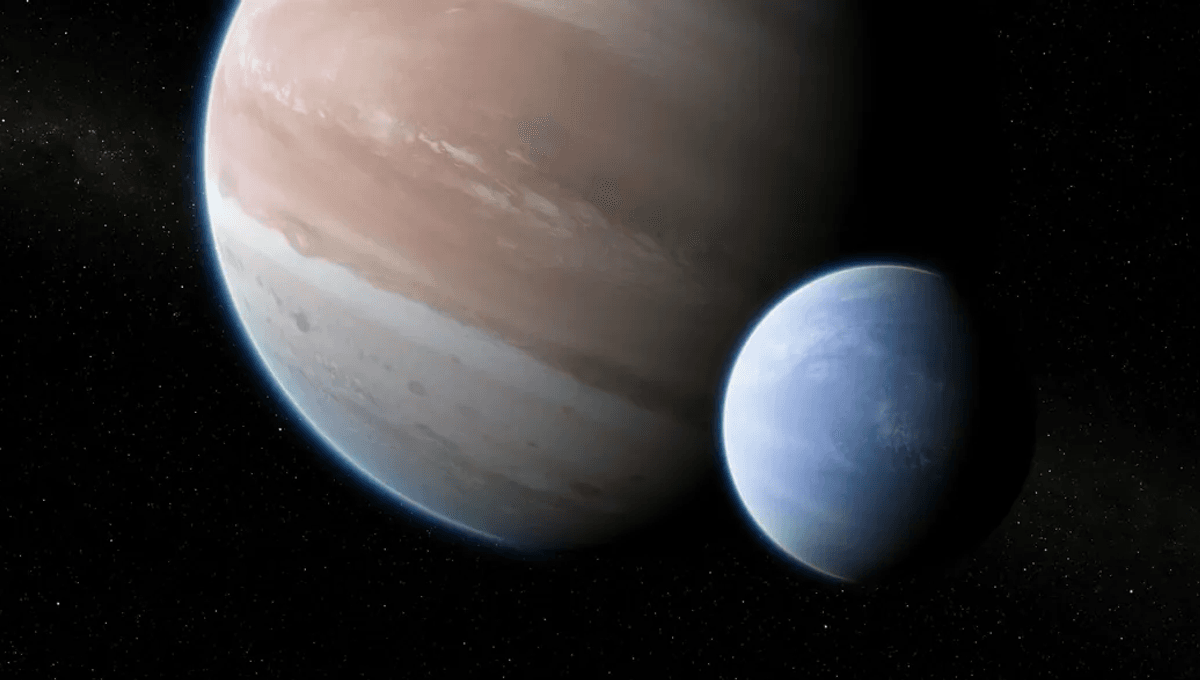
The tentative detection of the first-ever exomoons – moons orbting planets outside the Solar System – was called into question at the end of last year when scientists using a new detection algorithm said they couldn’t find them. The exomoons have been at the center of plenty of drama over the five years since their potential discovery but the December paper appeared to have put an end to the saga. But a good saga can always come back with a sufficient twist.
The original discovery team has come back with a new yet-to-be peer-reviewed study rebutting the rejection of the exomoons’ discovery and arguing the claims in December’s research are wrong. They say the exomoons are there and the problem is not with the data but with the detection algorithm.
Let’s rewind. Back in 2018, researchers announced the potential discovery of an exomoon around planet Kepler-1625 b. Over 3,500 exoplanets – planets that orbit a star other than our Sun – had been found by then but this was the first-ever exomoon. The original data suggesting the detection came from NASA’s Kepler Space Telescope, a planet-hunting telescope responsible for many planetary discoveries. The possible moon seemed to have played hide and seek in that data, not appearing often, but a follow-up with Hubble delivered more data that once again made the case for the exomoon.
Another potential exomoon was discovered a year later by the same team, this time around exoplanet Kepler-1708 b. Both candidate moons are huge, bigger than half the planets in the Solar System, and orbiting an even bigger planet. They are also the only exomoons found yet. Over 5,000 exoplanets have been found as of January 2024, and yet still only two exomoons. Seeing as moons vastly outnumber planets in our Solar System, this is strange.
Both exomoons are also far away, respectively 8,200 light-years and 5,500 light-years from Earth. The detections came from spotting the moons reducing the light of their star by a tiny fraction as they passed in front of it, just as their planets were detected. It’s an orbiting needle in a haystack. For this reason, Dr René Heller and Dr Michael Hippke developed their algorithm to better search for exomoons. What they found is lower statistical evidence for the presence of exomoons around these two worlds.
“We would have liked to confirm the discovery of exomoons around Kepler-1625b and Kepler-1708b,” Dr Heller at the Max Planck Institute for Solar System Research said in a statement in December 2023. “But unfortunately, our analyses show otherwise.”
Dr David Kipping and Dr Alex Teachey of the original discovery lead the rebuttal paper. They argue that the data from Heller and Hippke for the moon of Kepler-1625 b also shows the same potentially moon-like dip but that their analysis excludes it. For the moon of Kepler-1708 b, the team re-analyzed the data with the same parameters as Heller and Hippke, finding once again the moon signal with even better confidence than before.
“We conclude that both candidates remain viable but certainly demand further observations,” they wrote in their preprint paper.
So are the exomoons there or not? We don’t know. The new study certainly makes a strong case for not discarding that hypothesis just yet.
The December paper was published in Nature Astronomy. The rebuttal has been submitted to the journal as a Rising Matter and is currently available on the ArXiv.
Source Link: Exomoon Or Not? Astronomers Argue Over Possible Discovery Of Moons Beyond The Solar System